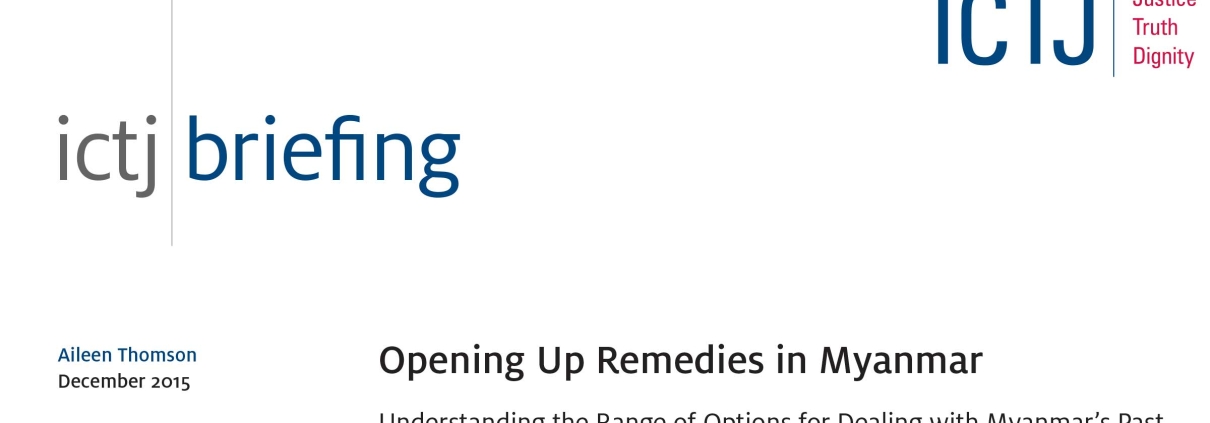Opening Up Remedies in Myanmar Understanding the Range of Options for Dealing with Myanmar’s Past
Th is year has been pivotal for Myanmar: Elections were held in November and an 18-month negotiation process between the government and ethnic armed organizations resulted in a partial Nationwide Ceasefire Agreement signed in October.1 Despite the many limitations of each, the elections and ceasefire represent a step toward democracy and sustainable peace, and there is a general feeling that a better future is possible in Myanmar. However, systems of oppression and the legacy of impunity act as some of the biggest barriers to this future.
Whenever a challenge or mild opposition arises, security forces default to their brutal traditions of violence and repression. For instance, memories of the 1988 protests and crackdown surfaced during the repression of student protests in March 2015, fueling public outrage and fear. Efforts to end decades of armed conflict between ethnic armed groups and the Myanmar military are also impacted by the past. Broken promises, conflicting narratives and the refusal to acknowledge grave abuses committed by the military lead to mistrust among leaders and between civilians and the government.
Further, the culture of impunity leads to continuing human rights violations, including sexual violence and torture, which fuel conflict. Victims and their families suffer enormous physical, psychological, social, and economic impacts from violations that do not ease with time. These violations also contribute to displacement, as civilians flee their homes and communities to avoid not only direct conflict but the accompanying abuses against civilians. Fear of retribution for past misdeeds lurks behind the military’s refusal to give up their constitutionally mandated 25 percent of parliamentary seats.
In spite of existing misgivings, a measured and responsible process of dealing with the past could help break the cycle of violence and human rights violations. An honest and open acknowledgment by the government of past violations and its responsibility to provide a remedy, combined with practical steps to fulfi ll that responsibility, would go a long way toward building trust and promoting reconciliation.
Owner/Developer : ICTJ
Language : English

